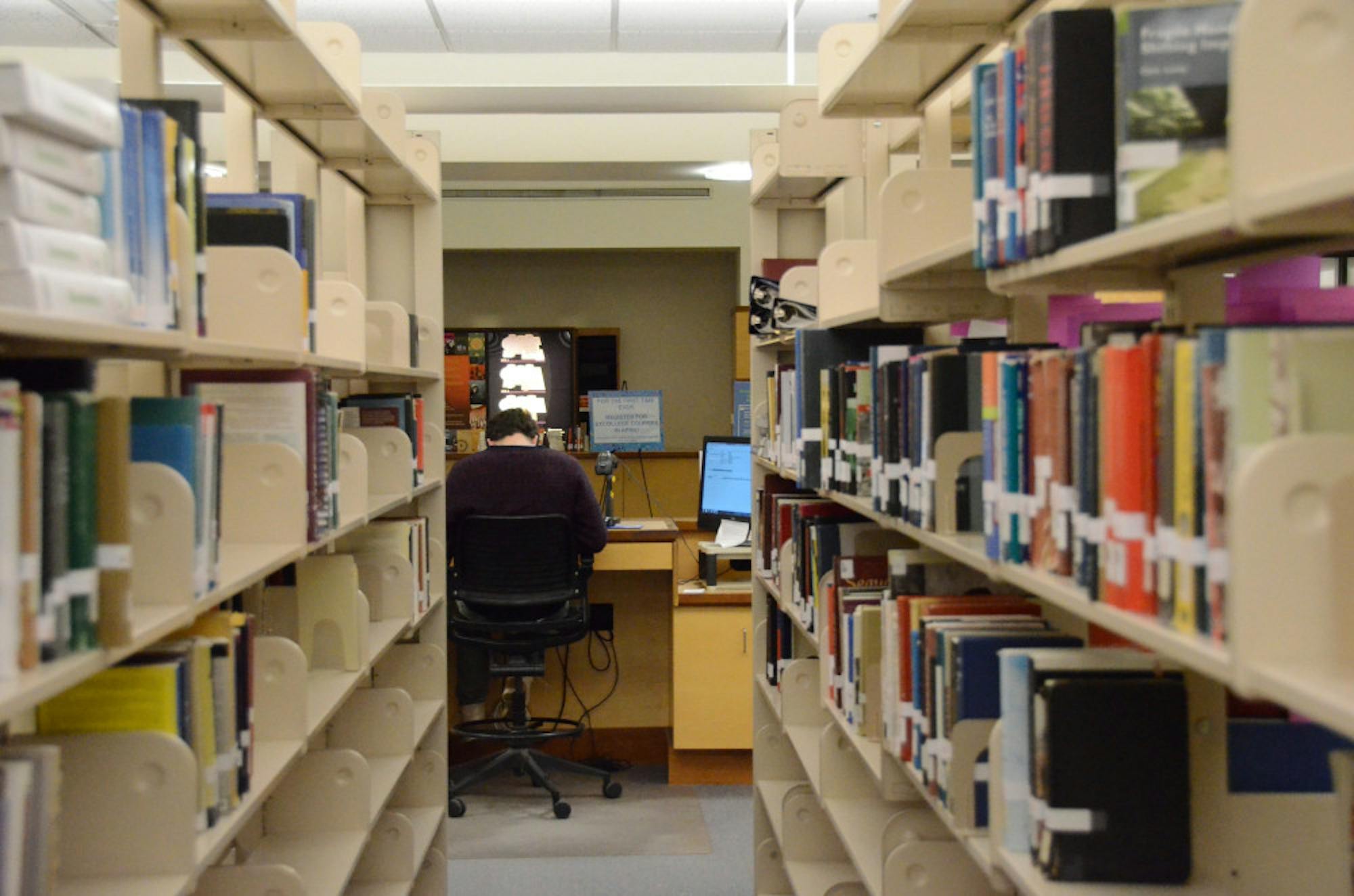As of last semester, Tisch Library and the Office for Student Success and Advising have been piloting a textbook reserve system intended to reduce the financial burden that textbooks create for students.
Through this system, textbooks for a variety of classes are put on reserve for any student to borrow. According to Martha Kelehan, head of scholarly communications and collections at Tisch Library, textbooks typically can be rented out for four hours,and as of this semester, students can also use them outside of the library.
Laura Wood, director of Tisch Library, explained that while the system was initially intended to benefit students who struggle to purchase expensive textbooks, the library inherently serves everyone in the community.
“Everything we make available, we make available to everybody, whenever we can,” Wood said.
Wood added that this system is not intended to discourage people from buying textbooks. The goal is simply to make sure that an inability to access textbooks does not negatively affect students.
“We are trying to make sure that every student can be successful and that access to course material on a regular basis isn’t a barrier to them getting their work done,” Wood said.
Kelehan said that there are a variety of factors involved in choosing which course textbooks are put on reserve.
“We used classes that we knew were high [enrollment and] first-year enrollment,” Kelehan said. “We picked classes that are the gateway classes, classes that you have a lot of non-majors in."
Kelehan explained that pricing is also considered when choosing textbooks for the reserve, pointing out that having a $300 textbook would typically be more impactful than a $50 textbook.
Dean of the School of Arts and Sciences James Glaser said the university wants to help students battle the high costs associated with attending Tufts, including the costs of textbooks.
“Families have to sacrifice to send their children to a university,” Glaser said. “We want to do all that we can to ease that burden.”
Professor David Proctor in the Department of History also said that he thinks textbook prices are unnecessarily high and had asked the library for his courses to be added to the new reserve system as soon as he heard about it. Two of his European history survey courses were approved to be included in the reserve.
“This program is great because I think it really does address a need,” Proctor said. “It’s a small way, but at least it’s a little something that blunts what can be a really pricey bill every semester when it comes to textbooks.”
According to Proctor, the library had a similar reserve system 15 years ago, in which professors would have to send a list of their textbooks to the library to be put on reserve. Proctor explained that when the program ended due to the need to redistribute resources, difficulties arose for students and professors alike.
“You’d have to go out and buy your own version of the textbook to put on reserve for your students or hope that the publisher would be willing to give you an extra desk copy to use as a reserve copy,” Proctor said.
According to Wood, to fund the current program, the library had initially intended to reallocate funds that usually go toward building the library’s permanent collections. However, Glaser said he reached out to alumnus Steve Eisenstein (LA '84), who had previously expressed interest in contributing to a project such as this one.
“[Eisenstein] believes in the social mission of the school and our responsibility to educate a broad and diverse group of students,” Glaser said. “He very graciously agreed that some of his philanthropy would go to this project.”
Kelehan and Wood said that there are a variety of reasons students want to borrow books from the textbook reserve. While some quantitative data has already been accumulated, they said that the library intends to send out a survey later this semester to gather some qualitative data about students' use of the program as well.
Some students said that they heard about the textbook reserve system from their professors and used the reserved books before their own copies had arrived. First-year Sami Heyman used the system while waiting for her Spanish 22 textbook to arrive in the mail and commented on the ease with which she was able to use the system.
“I was happy with how simple it was,” Heyman said. “All the textbooks that I needed were there, which was nice. I just looked up the call numbers on the library website and then told them to the person.”
First-year Kirt Thorne said that he used the reserve system because he preferred the physical textbook to the eBook version he had purchased.
“Last semester when I took EC 5, I used it pretty much every time I needed to study or take notes from the book,” Thorne said.
While the textbook reserve system is still in its pilot stages, Wood said that there have been no indications so far that the program will not continue into the future.
She added that the email blast sent on Sept. 7, which included information about the textbook reserve system, has the highest email opening rate of any email the library has sent to date.
“Textbooks are a thing that catches students' attention,” Kelehan said. “People feel the textbook issue. It’s really personal.”






